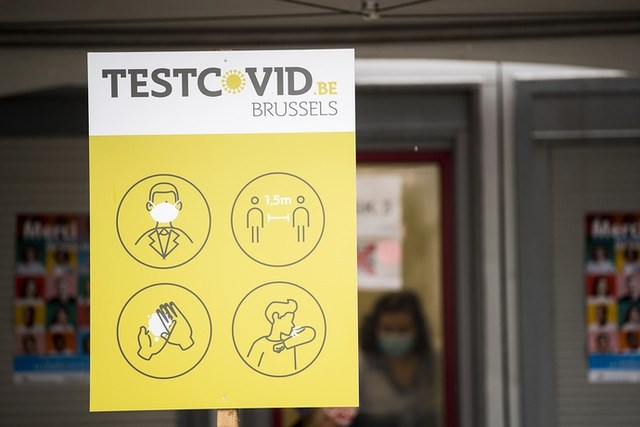The average number of new coronavirus infections per day in Belgium has almost reached 1,000, continuing the constant rise of the last few days.
Between 3 and 9 July, an average of 934 new coronavirus infections were detected per day, an 83% increase from the average of the previous week, according to the latest figures from Sciensano Health Institute published on Tuesday morning.
The daily average of testing over the past week decreased by 2% since last week (an average of 59,818.3 tests were carried out), whilst the positivity rate has increased to 1.7%.
The number of tests being taken last week increased as a result of people travelling during the holidays, however, this has died down. At first, it appeared that the rise in new cases was a result of the increased testing, but that relationship can no longer be seen.
Since the beginning of the pandemic, 1,097,029 cases of coronavirus infection have been diagnosed in Belgium.
However, during the same period, the average number of deaths due to the virus dropped to 1.9 (down by 41% from the previous week), bringing the total to 25,205 deaths since the start of the pandemic in Belgium, and continuing a period of constant decline.
Between 6 and 12 July, there was an average of 17.4 new hospital admissions per day due to the coronavirus, a 16% increase compared to the previous reference period.
On Monday, a total of 234 people were in hospital as a result of the coronavirus (three more than on Sunday) of whom 89 (+6) people were being treated in intensive care, and 59 people (-3) were on a ventilator.
The incidence, which indicates the average number of new cases per day per 100,000 inhabitants, has increased by 82% since the last 14-day period but has increased since June, as it now sits at 88.
The reproduction rate of the coronavirus fell slightly from 1.09 last week to 1.02. When this figure is higher than 1, it means the pandemic is gathering pace in Belgium.
As of Sunday, 81.1% of the adult population in Belgium had received the first injection of a coronavirus vaccine. This figure equates to just over 7.59 million people.
Of these, almost 4.86 million people (52.7% of the adult population in Belgium) have received a second dose and are now considered fully protected.
The Brussels Times

